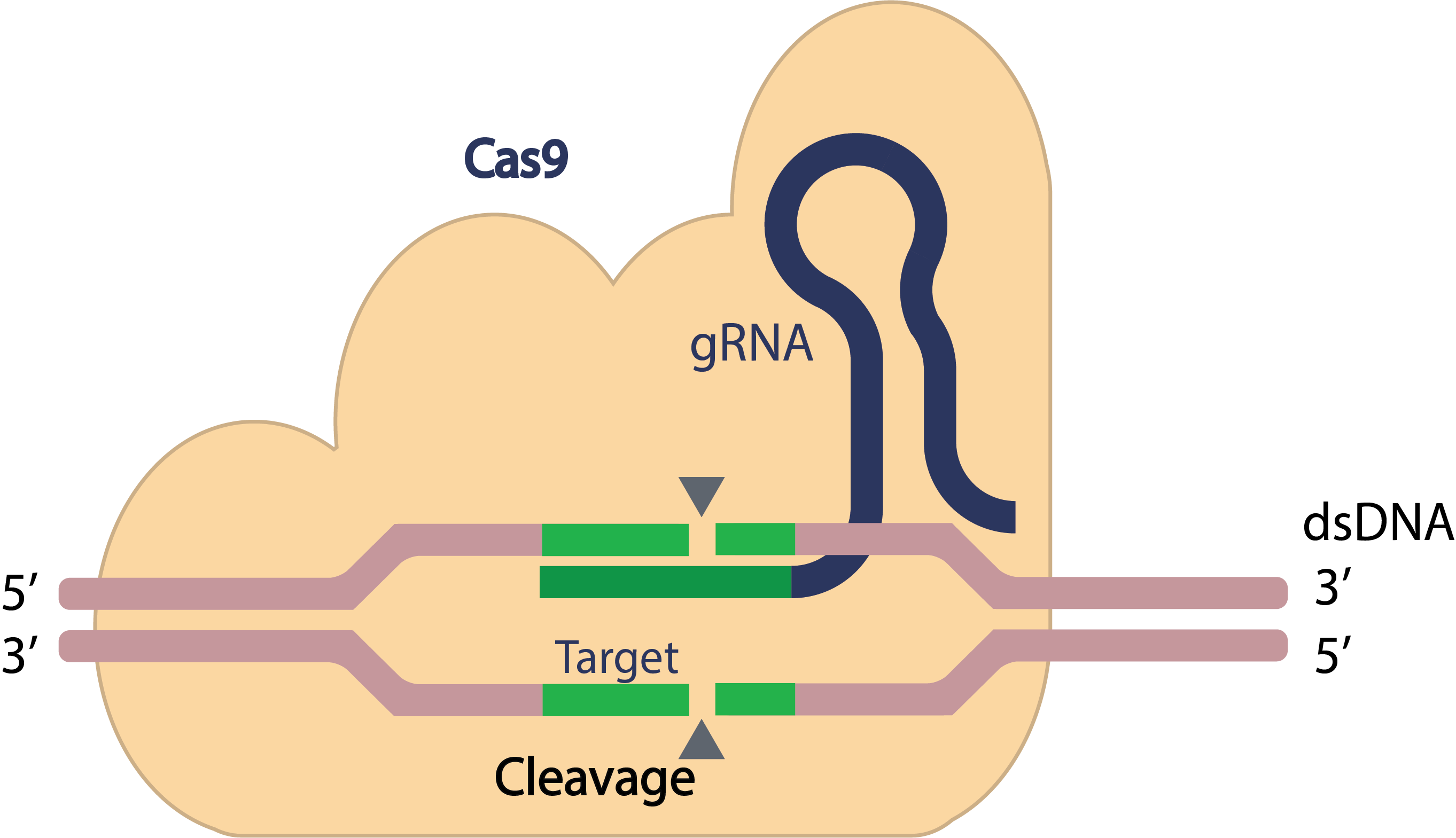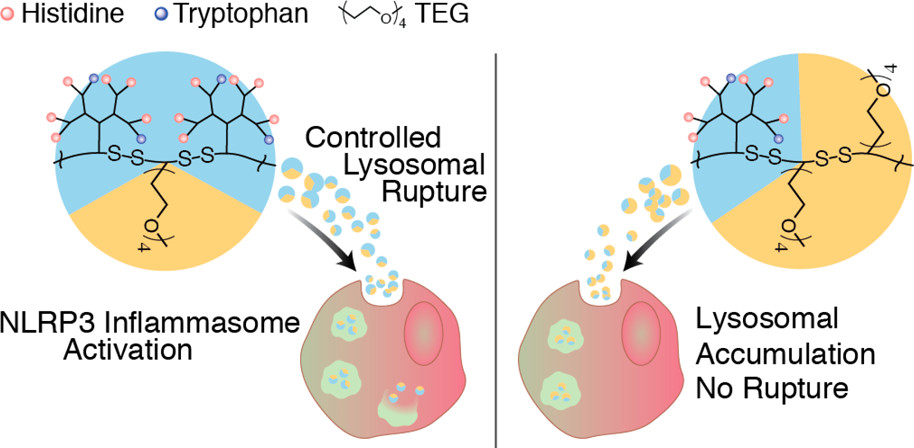RNA Delivery
Various RNAs, such as siRNA, microRNA, and mRNA, play pivotal roles in biological functions and have gained increasing importance for therapeutic applications. However, the lack of safe and efficient delivery vehicles remains the major challenge to RNA-based therapeutics. Our lab designs both small molecule and polymer-based molecular carriers for safe and efficient delivery of both short and long RNAs into cells. Using natural building blocks such as amino acids, we have developed dendronized bolaamphiphiles and polypeptides that are biocompatible, biodegradable, and highly efficient for RNA delivery. Through collaborations with biomedical researchers, we further investigate RNA delivery for various therapeutic applications including diabetes, vaccine development and immunotherapy.
Representative papers:
Multifunctional Dendronized Peptide Polymer Platform for Safe and Effective siRNA Delivery.
J. Am. Chem. Soc. 2013, 135, 4962-4965.
DOI: 10.1021/ja400986u
Structure-Based Design of Dendritic Peptide Bolaamphiphiles for siRNA Delivery.
ACS Central Science 2015, 1, 303-312.
DOI: 10.1021/acscentsci.5b00233
Biodegradable Dendronized Polymers for Efficient mRNA Delivery.
ChemistrySelect 2016, 1, 4413-4417.
DOI: 10.1002/slct.201600939
CRISPR-Cas9 Delivery

The CRISPR-Cas technology provides a revolutionary new tool to precisely disrupt, insert, or replace a specific DNA sequence in the genome. This emerging technology offers promising solutions to genetic diseases by editing malfunctioning DNA sequences. However, efficient methods of delivery are critical to the success of therapeutic applications because CRISPR-Cas gene editing components must be transported directly to the nucleus of targeted cells. To address this critical challenge, our lab is developing several non-viral strategies for safe and efficient delivery of CRISPR-Cas machinery.
Immuno-Materials

Vaccines and immunotherapies provide enormous improvements to human health through the prevention and treatments of numerous diseases. Recently, the convergence of biomaterials and immunobiology has inspired our lab to develop new immunomodulatory materials as adjuvants for enhancing vaccine efficacy. Our latest collaborative study shows a structure-based design of dendronized polypeptides that can control the activation of NLRP3 inflammasome, a multiprotein oligomer responsible for the activation of inflammatory responses. We continue to develop novel immuno-materials for the advancement of revolutionary immunotherapies.
Representative papers:
Immunomodulation of the NLRP3 Inflammasome through Structure-Based Activator Design and Functional Regulation via Lysosomal Rupture.
ACS Central Science. 2018, 8, 982-995.
DOI: 10.1021/acscentsci.8b00218
